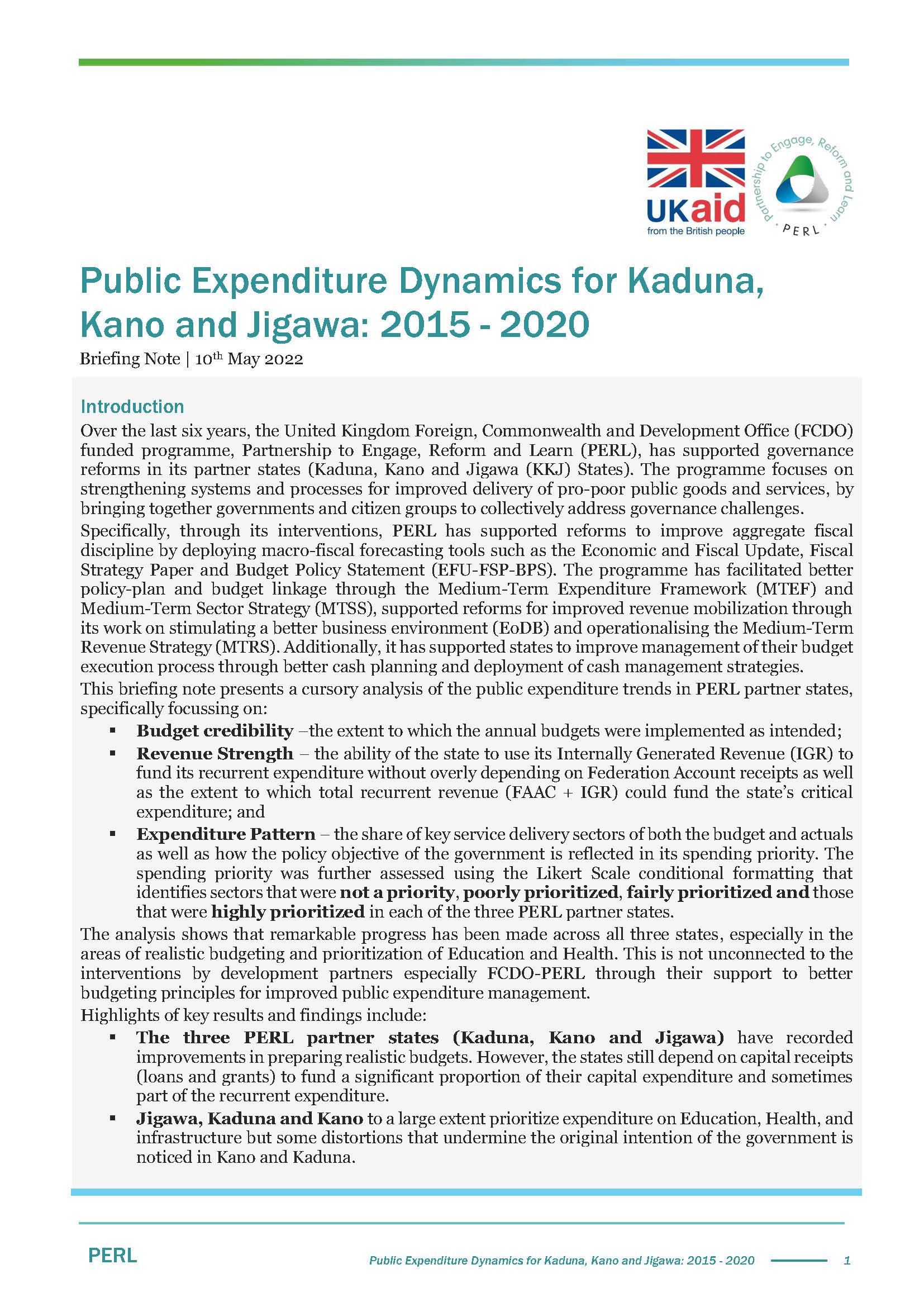PERL has supported reforms to improve aggregate fiscal discipline by deploying macro-fiscal forecasting tools such as the Economic and Fiscal Update, Fiscal Strategy Paper and Budget Policy Statement (EFU-FSP-BPS). The programme has facilitated better policy-plan and budget linkage through the Medium-Term Expenditure Framework (MTEF) and Medium-Term Sector Strategy (MTSS), supported reforms for improved revenue mobilization through its work on stimulating a better business environment (EoDB) and operationalising the Medium-Term Revenue Strategy (MTRS). Additionally, it has supported states to improve management of their budget execution process through better cash planning and deployment of cash management strategies. This briefing note presents a cursory analysis of the public expenditure trends in PERL partner states, specifically focussing on: Budget credibility –the extent to which the annual budgets were implemented as intended; Revenue Strength – the ability of the state to use its Internally Generated Revenue (IGR) to fund its recurrent expenditure without overly depending on Federation Account receipts as well as the extent to which total recurrent revenue (FAAC + IGR) could fund the state’s critical expenditure; and Expenditure Pattern – the share of key service delivery sectors of both the budget and actuals as well as how the policy objective of the government is reflected in its spending priority. The spending priority was further assessed using the Likert Scale conditional formatting that identifies sectors that were not a priority, poorly prioritized, fairly prioritized and those that were highly prioritized in each of the three PERL partner states.
